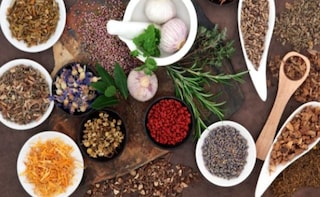The healing power of ayurveda is well documented. Often referred to as the "science of life", Ayurveda aims to achieve holistic development of the mind, body and soul of any individual who abides by this age old practice. Optimistic thinking, regular exercise and the yogic techniques of meditation and breathing may take you places and keep your body calm and balanced. Our diet too has a significant role in our life and has the power to heal when consumed the right way.
(Also read: Know Your Prakriti: Are You Vata, Pitta or Kapha? )
Advertisement
Advertisement
(Also read: Know Your Prakriti: Are You Vata, Pitta or Kapha? )
Advertisement
Advertisement
For the latest food news, health tips and recipes, like us on Facebook or follow us on Twitter and YouTube.
Advertisement
